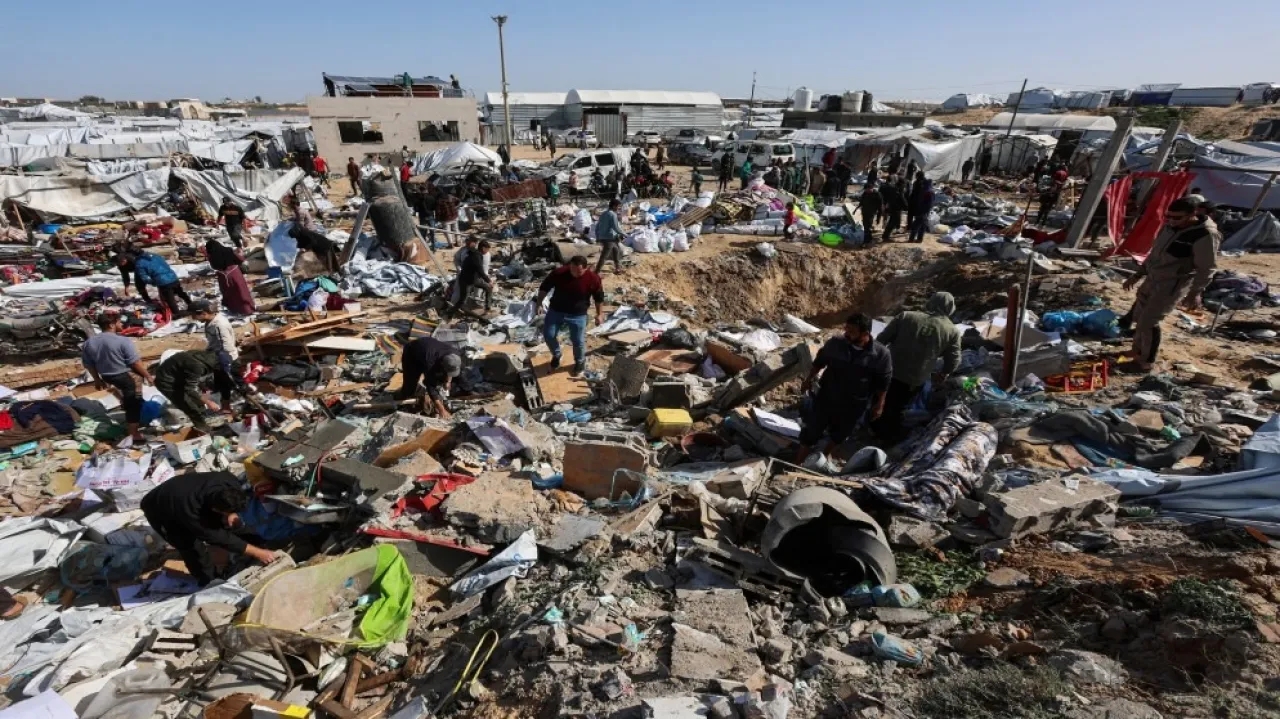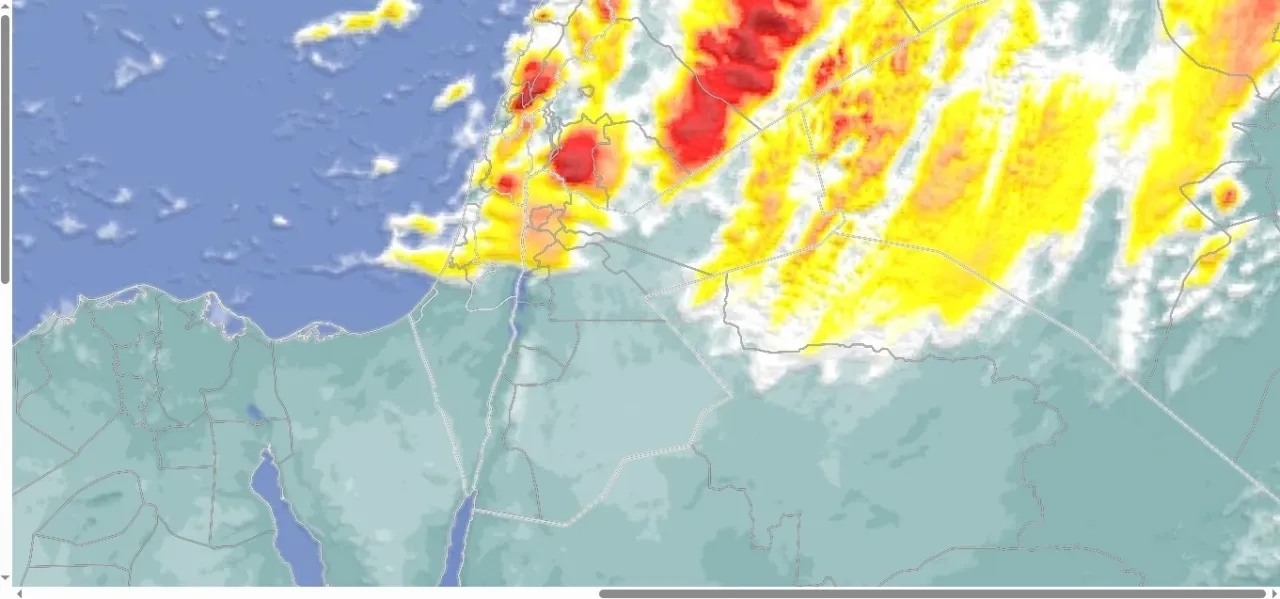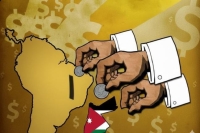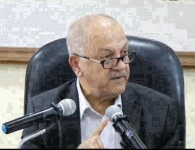الرئيس ترامب ومستقبل الشرق الأوسط بين المساعدات والتحديات الاقتصادية .. Trump and the Future of the Middle East Between Aid and Economic Challenges

الرئيس ترامب ومستقبل الشرق الأوسط
بين المساعدات والتحديات الاقتصادية
بقلم المهندس محمد الخطيب
في خطوة غير متوقعة، قرر الرئيس الأمريكي المنتخب، دونالد ترامب، تعليق المساعدات الأمريكية المقدمة للأردن لمدة 90 يومًا، وهو القرار الذي فاجأ العديد من المراقبين في المنطقة. يشمل هذا التوقف المؤقت، حيث انها تشكل جزءًا مهمًا من الدعم المالي الذي تقدمه الولايات المتحدة للأردن. هذا القرار لا يعد مجرد تغيير سياسي، بل يعد مؤشرًا على تحولات عميقة في العلاقات بين الأردن والولايات المتحدة، التي لطالما تميزت بالقوة والمتانة.
تعتبر العلاقات الأردنية الأمريكية ذات أهمية استراتيجية، إذ تعتبر الولايات المتحدة شريكًا رئيسيًا في العديد من المجالات، بما في ذلك الاقتصاد والأمن. وفي حين أن هذه المساعدات تشكل جزءًا كبيرًا من الدعم المالي الذي يساهم في استقرار الاقتصاد الأردني، فإن القرار الأمريكي يثير تساؤلات حول تأثيراته الاقتصادية والاجتماعية المحتملة على المملكة في المدى القريب والبعيد.
إضافة إلى ذلك، تسعى المملكة الأردنية إلى تعزيز علاقاتها مع القوى الدولية الأخرى، حيث تم توقيع اتفاقية الشراكة الاستراتيجية الشاملة بين الأردن والاتحاد الأوروبي بقيمة 3 مليارات يورو للفترة من (2025-2027). يُعتبر هذا الاتفاق خطوة هامة نحو تعزيز الاستقرار الاقتصادي والسياسي في المنطقة، لا سيما أن الأردن يشغل موقعًا جغرافيًا وسياسيًا مركزيًا في منطقة الشرق الأوسط، ما يجعله لاعبًا رئيسيًا في الحفاظ على التوازن الإقليمي.
من جانب آخر، يُشير بعض المراقبين إلى أن قرار ترامب يأتي في إطار سياسته الاقتصادية التي تعتمد على تحريك الأسواق العالمية بتغريدة واحدة. ورغم أن هذا التكتيك قد يحقق بعض الأهداف قصيرة المدى، إلا أن تعليق المساعدات قد يحمل تبعات طويلة الأمد على الأردن، الذي يعاني من ضغوط اقتصادية متزايدة.
في هذا السياق، أشار السيناتور الديمقراطي جاك تشومر إلى أن القرار "غير قانوني"، لافتًا إلى أن المساعدات تم إقرارها بموجب قوانين الكونغرس الأمريكي، ما قد يعقد الأمور في حال تمت الموافقة عليها من جانب مجلس الشيوخ.
تظل العلاقة بين الأردن والولايات المتحدة ذات أهمية بالغة للمنطقة، ولكن مع التحديات الجديدة التي فرضها تعليق المساعدات، يبقى السؤال حول كيفية تعاطي الأردن مع هذه المتغيرات، وما هي الاستراتيجيات التي ستتبعها المملكة للتعامل مع هذه الضغوط على المستوى الاقتصادي والسياسي.
وهنا اريد ان اتناول عدة محاور
المحور الأول : الأثار المباشره على الأردن
لطالما كانت المساعدات الأمريكية، وخاصة من خلال وكالة "USAID"، جزءًا أساسيًا في تمويل العديد من المشاريع التنموية والبيئية في الأردن. لكن مع توقف هذه المساعدات، تتعرض العديد من هذه المشاريع التي كانت في طور التنفيذ لخطر التجميد. مشاريع حيوية مثل:
• إدارة النفايات: التي تهدف إلى تحسين إدارة المخلفات وتعزيز البيئة النظيفة.
• المشاريع التنموية: التي تشمل توفير فرص العمل وتحسين البنية التحتية.
• المشاريع الاجتماعية: التي تعمل على تعزيز جودة التعليم والخدمات الصحية.
• مشاريع معالجة المياه العادمة: التي كانت تهدف إلى تقليل الاعتماد على المياه الجوفية والسدود في الزراعة.
كل هذه المشاريع، التي تمثل جزءًا من استراتيجية الأردن للاستدامة البيئية والاجتماعية، تواجه الآن تهديدًا غير متوقع بسبب القرار الأمريكي.
المحور الثاني: المشاكل البيئيه والمناخيه
يعتبر قطاع المياه من أبرز القضايا التي تواجهها المنطقة، ويعد الأردن من أكثر الدول التي تعاني من نقص حاد في المياه. لذلك، كانت المشاريع التي تهدف إلى معالجة المياه العادمة، والمشاريع التي تساهم بمنع العصارة الناتجة عن تراكم النفايات من وصولها الى المياه الجوفية والاحواض المائية المشتركة بين الاردن وودول الجوار، تعتبر جزءًا من الحلول الممكنة لتلبية احتياجات الزراعة والمجتمع. هذه المشاريع كانت تُعتبر من أكثر الحلول ابتكارًا لمواجهة تحديات المياه في المستقبل، خاصة في ظل التوقعات بحدوث أزمة مائية كبرى بحلول عام 2050. لكن مع توقف المساعدات، فإن هذه المشاريع قد تجد نفسها في أزمة حقيقية، مما يزيد من تعقيد الوضع البيئي والمائي في الأردن والمنطقة بأسرها.
وبرأي الشخصي وبكل شفافيه على الأردن ايجاد حلول في ظل هذا الوضع الصعب، يتعين على الأردن أن يجد بدائل استراتيجية تعزز الاقتصاد المحلي وتوفر فرصًا جديدة للنمو. من أبرز هذه الحلول:
• تعزيز الصناعات المحلية: يجب العمل على تقوية الصناعات الأردنية وزيادة قدرتها التنافسية في السوق المحلية والدولية. تشجيع او دعم المشاريع الصغيرة والمتوسطة يمكن أن يساهم بشكل كبير في تحقيق هذا الهدف.
• فتح أسواق جديدة: يُعتبر تعزيز التبادل التجاري مع دول الجوار مثل سوريا ولبنان والعراق وغزة خطوة استراتيجية لتوسيع نطاق الصادرات الأردنية وزيادة تدفق الموارد الاقتصادية.
• إعادة النظر في النظام الضريبي: فرض قوانين ضريبية مرنة يمكن أن يسهم في تحفيز الاقتصاد من خلال جذب الاستثمارات وتوفير بيئة مواتية للأعمال.
الأردن أمام تحدٍ كبير بعد قرار تعليق المساعدات الأمريكية، ولكنها ليست نهاية الطريق. بل هي فرصة لإعادة التفكير في استراتيجيات النمو الاقتصادي على المدى الطويل. رغم أهمية الدعم الخارجي، إلا أن تعزيز الاعتماد على الذات وتنمية القطاعات المحلية قد يكون الحل الأمثل لتجاوز هذه المرحلة. إن التحديات التي يواجهها الأردن تتطلب أكثر من مجرد حلول آنية، بل رؤى استراتيجية تؤسس لمستقبل أكثر استدامة. ومن خلال التعاون الإقليمي، وتطوير البنية التحتية، وفتح أسواق جديدة، يمكن للأردن أن يظل ركيزة أساسية في المنطقة رغم كل الظروف.
******************************************************
Trump and the Future of the Middle East
Between Aid and Economic Challenges
By: Engineer Mohammed Al-Khatib
In an unexpected move, the newly elected U.S. President, Donald Trump, decided to suspend American aid to Jordan for 90 days, a decision that surprised many observers in the region. This temporary halt includes a significant portion of the financial support that the United States provides to Jordan. This decision is not merely a political change; it signals profound shifts in the relationship between Jordan and the United States, which has long been characterized by strength and stability.
The U.S.-Jordanian relationship is of strategic importance, as the United States is a key partner in various fields, including the economy and security. While this aid forms a significant part of the financial support contributing to the stability of Jordan's economy, the U.S. decision raises questions about its potential economic and social impacts on the Kingdom in both the short and long term.
Additionally, Jordan is seeking to strengthen its relations with other international powers. A comprehensive strategic partnership agreement was signed between Jordan and the European Union, valued at 3 billion euros for the period from 2025 to 2027. This agreement is considered a significant step toward enhancing economic and political stability in the region, especially since Jordan occupies a central geographical and political position in the Middle East, making it a key player in maintaining regional balance.
On the other hand, some observers suggest that Trump's decision is part of his economic policy, which relies on moving global markets with a single tweet. While this tactic may achieve some short-term goals, the suspension of aid could have long-term consequences for Jordan, which is already facing increasing economic pressures.
In this context, Democratic Senator Chuck Schumer pointed out that the decision is "illegal," noting that the aid was approved under U.S. congressional laws, which could complicate matters if it is approved by the Senate.
The relationship between Jordan and the United States remains of great importance to the region, but with the new challenges posed by the suspension of aid, the question remains as to how Jordan will navigate these changes and what strategies the Kingdom will adopt to address these pressures at both the economic and political levels.
Now, I’d like to discuss a few important points:
Part One: The Direct Impact on Jordan
American aid, especially through "USAID", has always been a crucial part of funding various developmental and environmental projects in Jordan. However, with the suspension of this aid, many of these ongoing projects are now at risk of being frozen. Vital projects, such as:
• Waste management: Aimed at improving waste disposal and promoting a cleaner environment.
• Development projects: Focusing on creating job opportunities and improving infrastructure.
• Social projects: Working to enhance the quality of education and healthcare services.
• Wastewater treatment projects: Aiming to reduce reliance on groundwater and dams for agriculture.
These projects, which were a key part of Jordan’s environmental and social sustainability strategy, now face unexpected challenges because of the U.S. decision.
Part Two: Environmental and Climatic Issues
The water sector is one of the most pressing issues facing the region, and Jordan is one of the countries suffering from a severe water shortage. Therefore, projects aimed at treating wastewater, as well as those that prevent leachate from accumulating waste from reaching groundwater and shared water basins between Jordan and neighboring countries, are considered part of the potential solutions to meet the needs of agriculture and communities. These projects were seen as some of the most innovative solutions to address future water challenges, especially with the projections of a major water crisis by 2050. However, with the cessation of aid, these projects may find themselves in a real crisis, further complicating the environmental and water situation in Jordan and the entire region.
In my personal opinion, and with full transparency, Jordan must find solutions in this difficult situation. The country needs to find strategic alternatives that can strengthen the local economy and open up new growth opportunities. Some of the solutions could include:
• Strengthening Local Industries: Jordan should work to improve its industries and make them more competitive both locally and internationally. Encouraging and supporting small and medium-sized enterprises (SMEs) can make a big difference in reaching this goal.
• Opening New Markets: Promoting trade with neighboring countries like Syria, Lebanon, Iraq, and Gaza is a strategic move to expand Jordan’s exports and increase the flow of economic resources.
• Reevaluating the Tax System: Implementing flexible tax laws could help stimulate the economy by attracting more investments and creating a favorable environment for business.
Jordan is facing a major challenge after the suspension of American aid, but this is not the end of the road. It’s actually an opportunity to rethink long-term strategies for economic growth. While external support is important, relying more on internal resources and developing local sectors could be the best way forward. The challenges Jordan faces require more than just short-term solutions—they require strategic thinking that will lead to a more sustainable future. Through regional cooperation, infrastructure development, and opening new markets, Jordan can continue to be a key player in the region, no matter the challenges.














